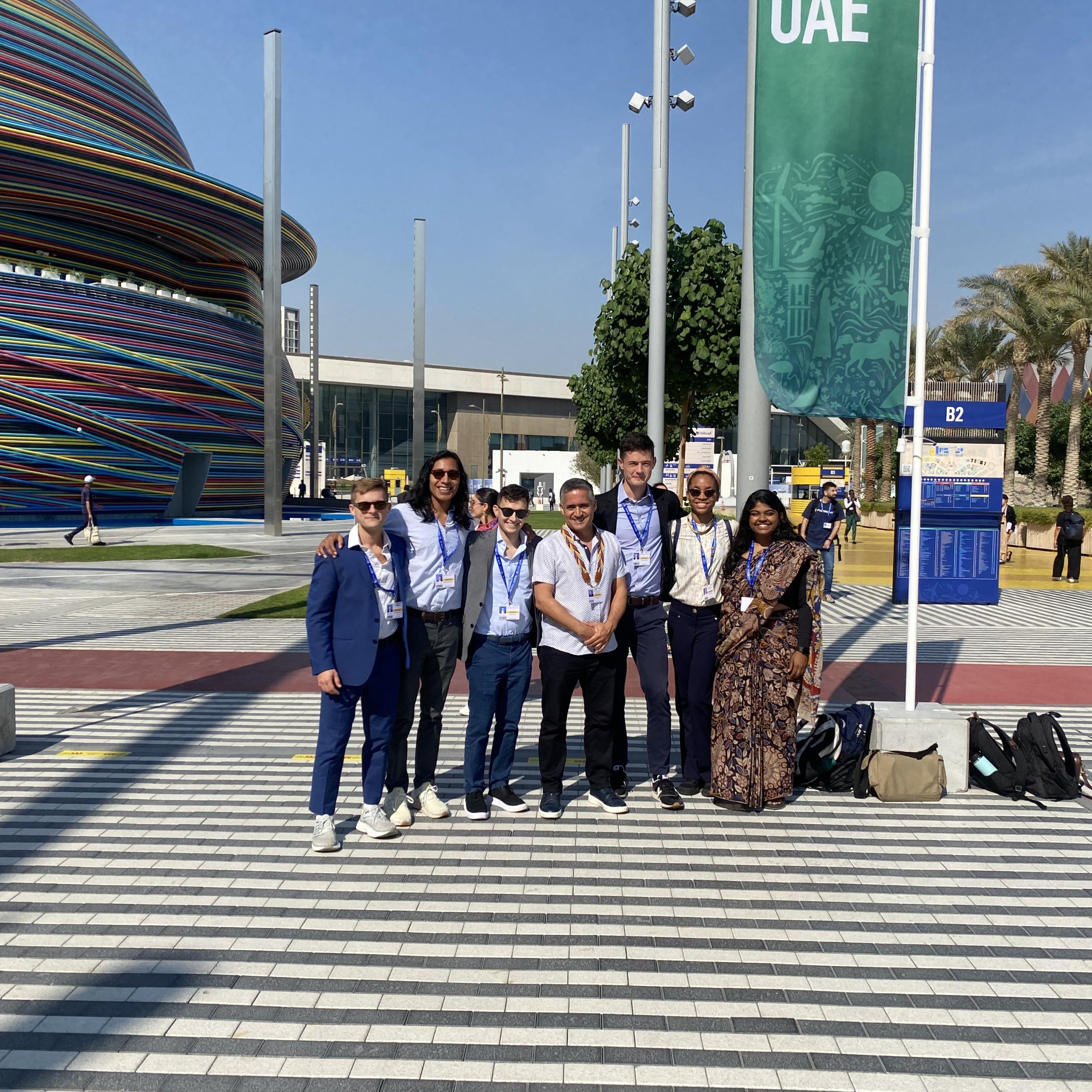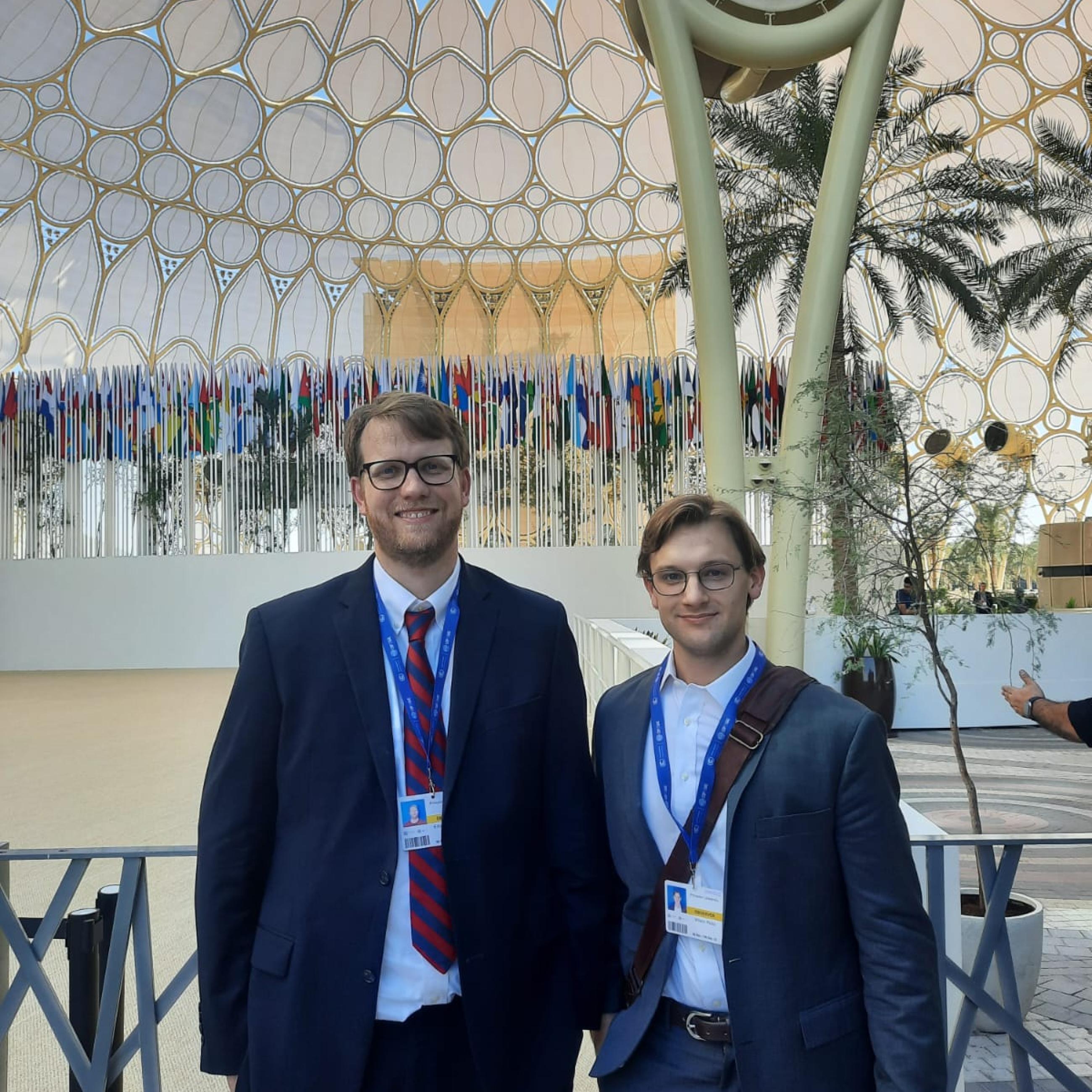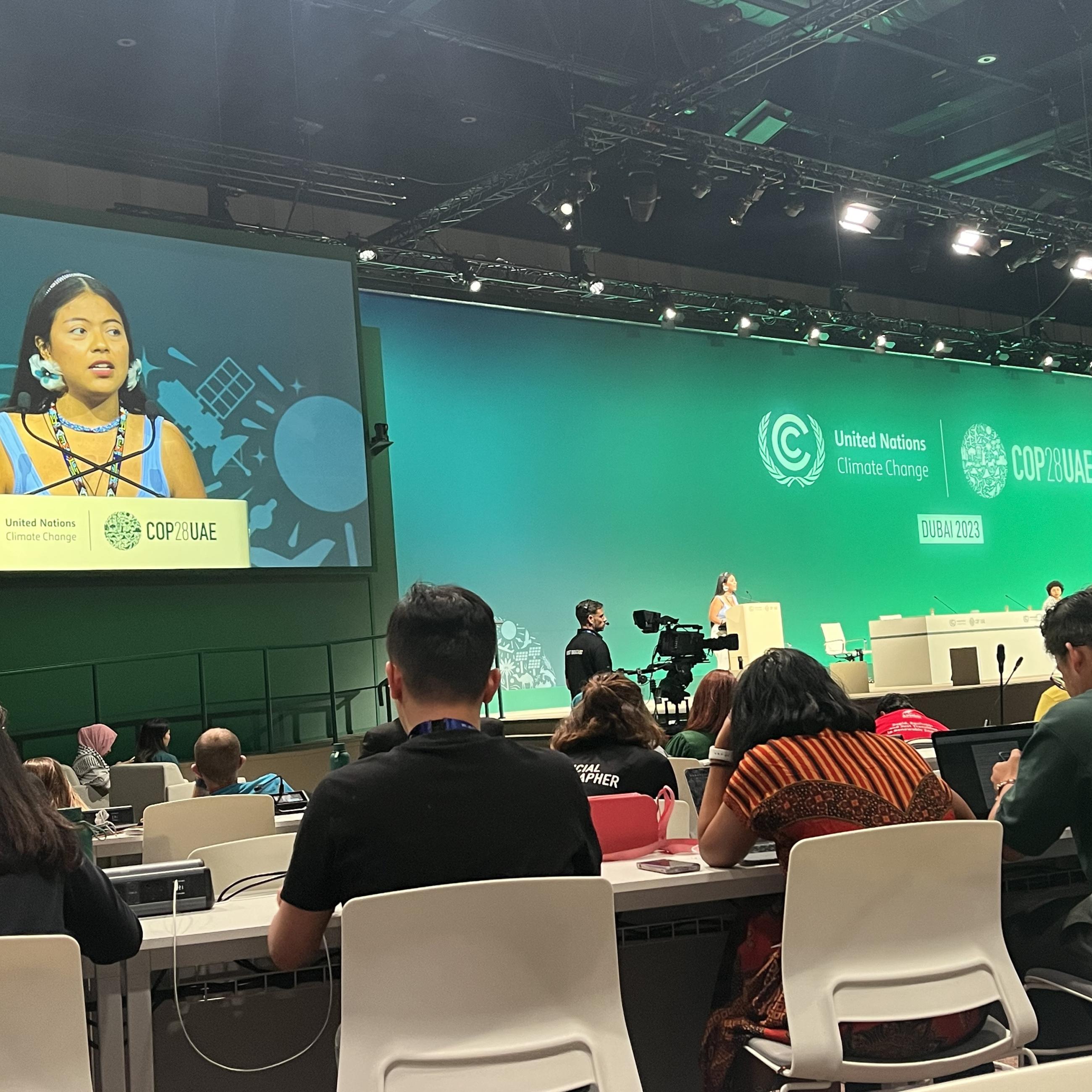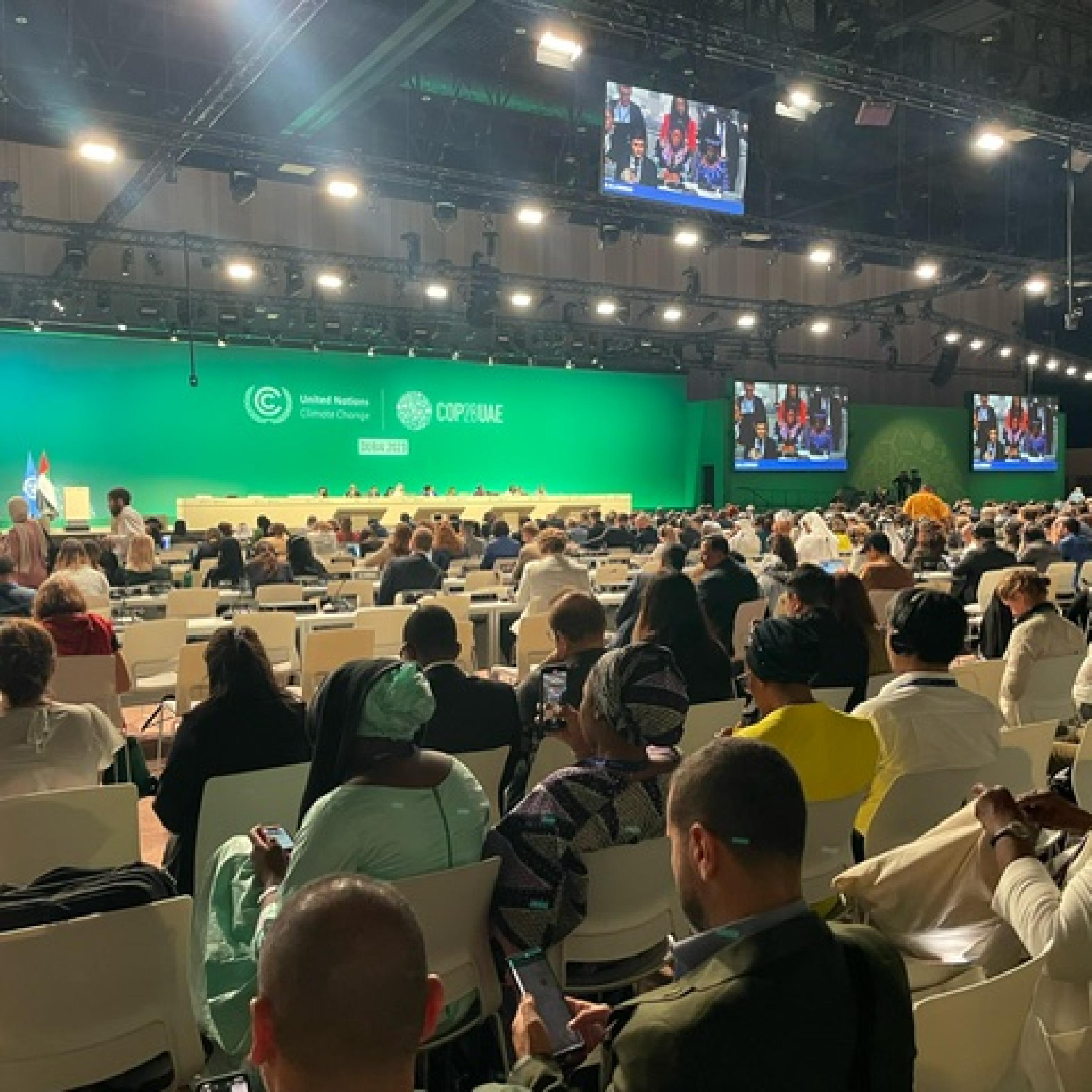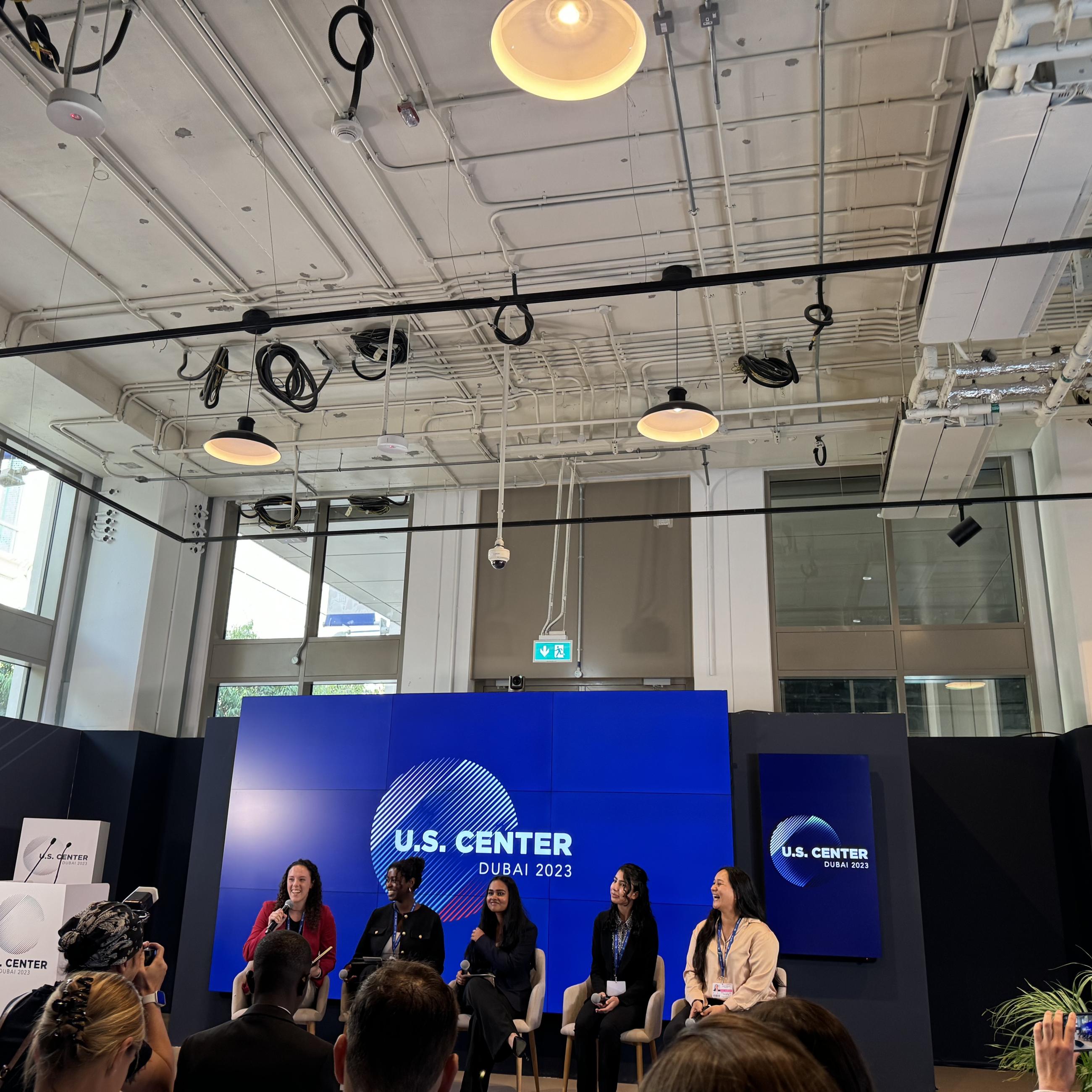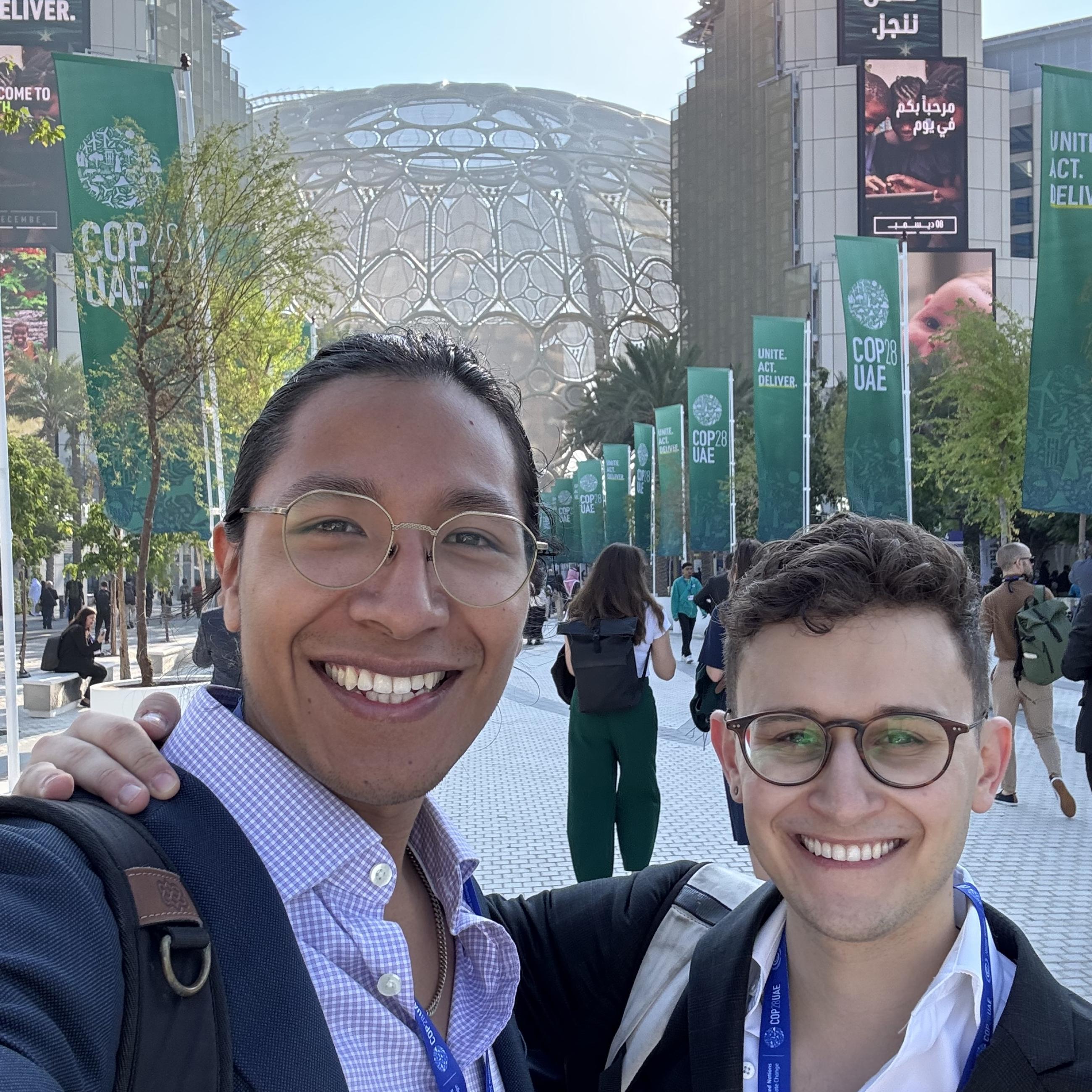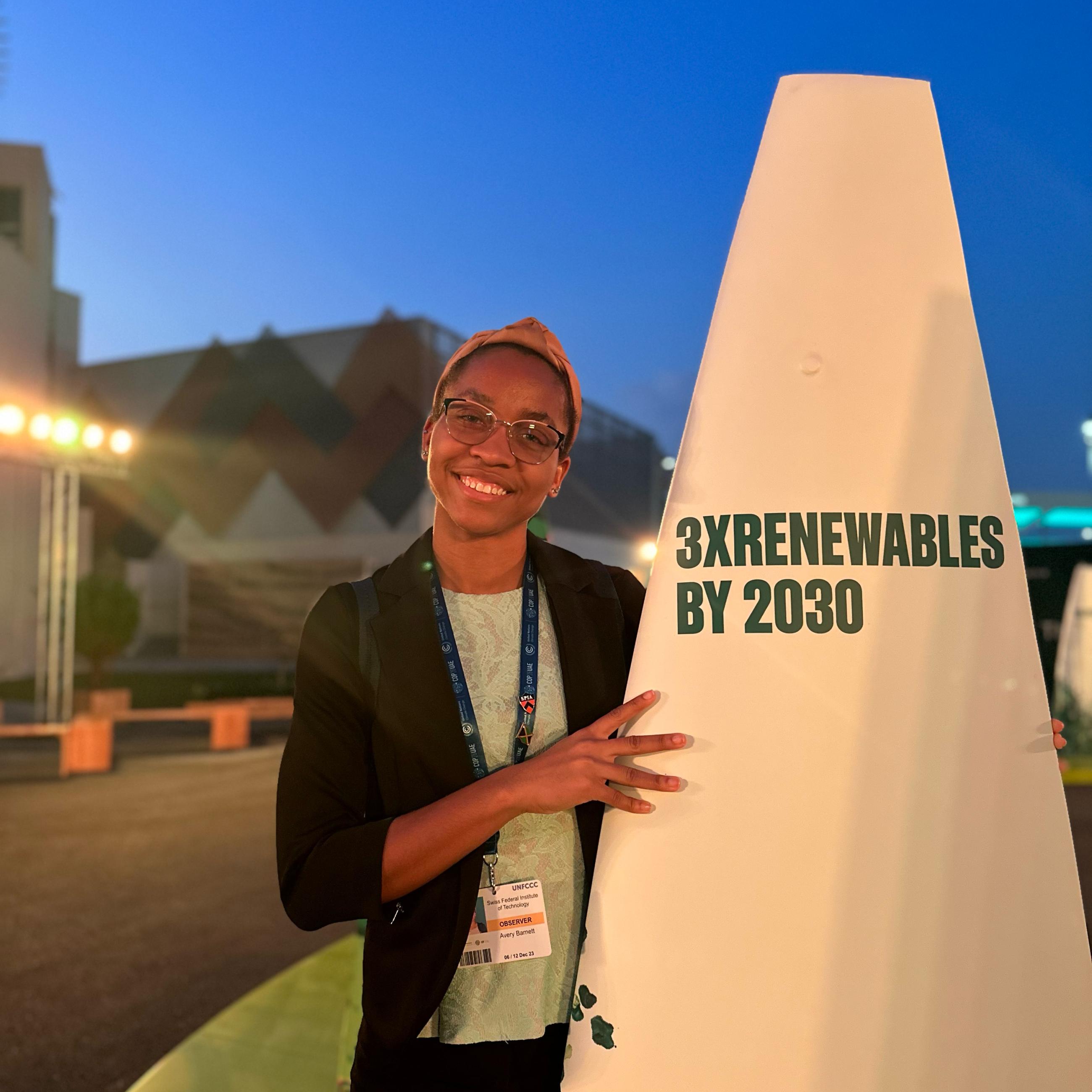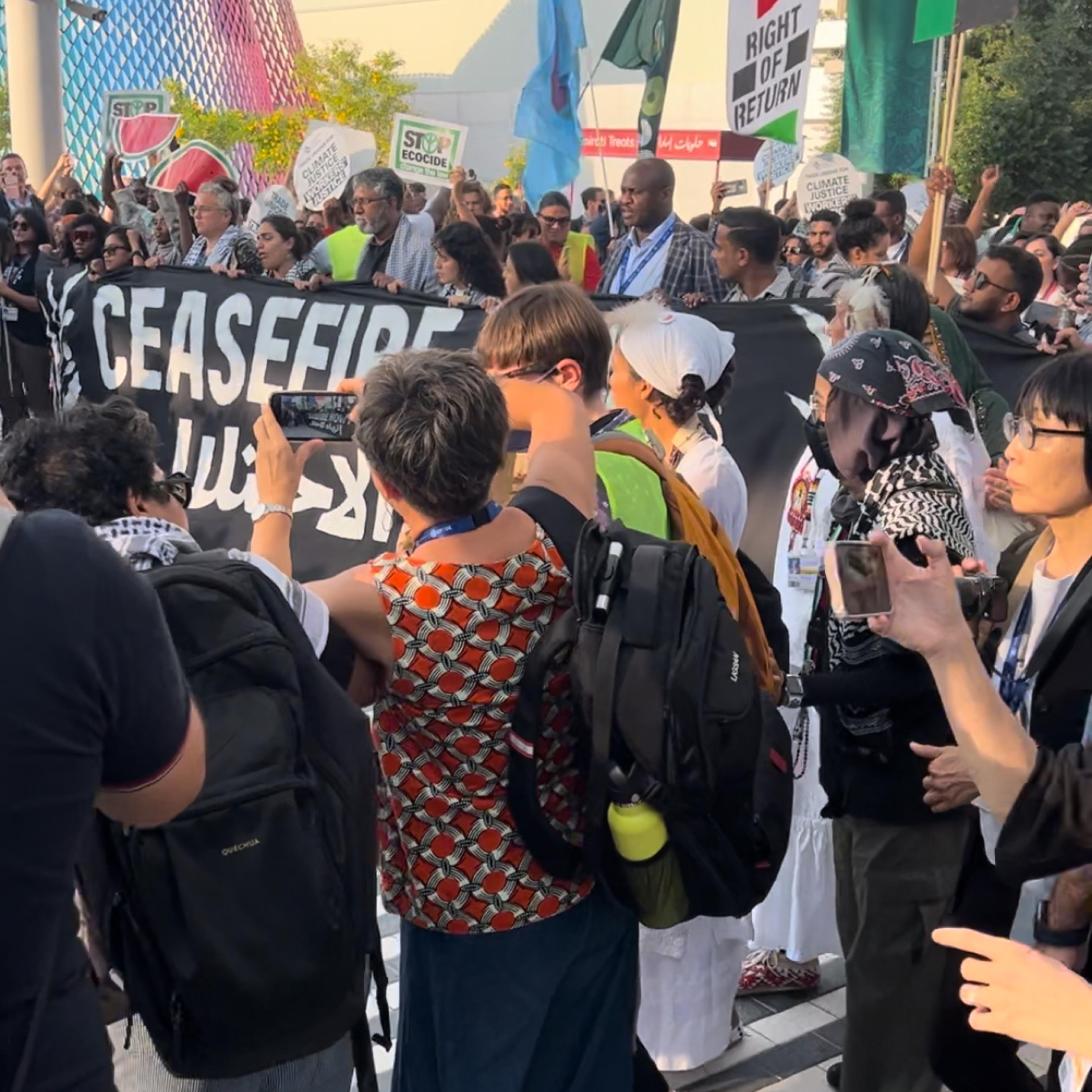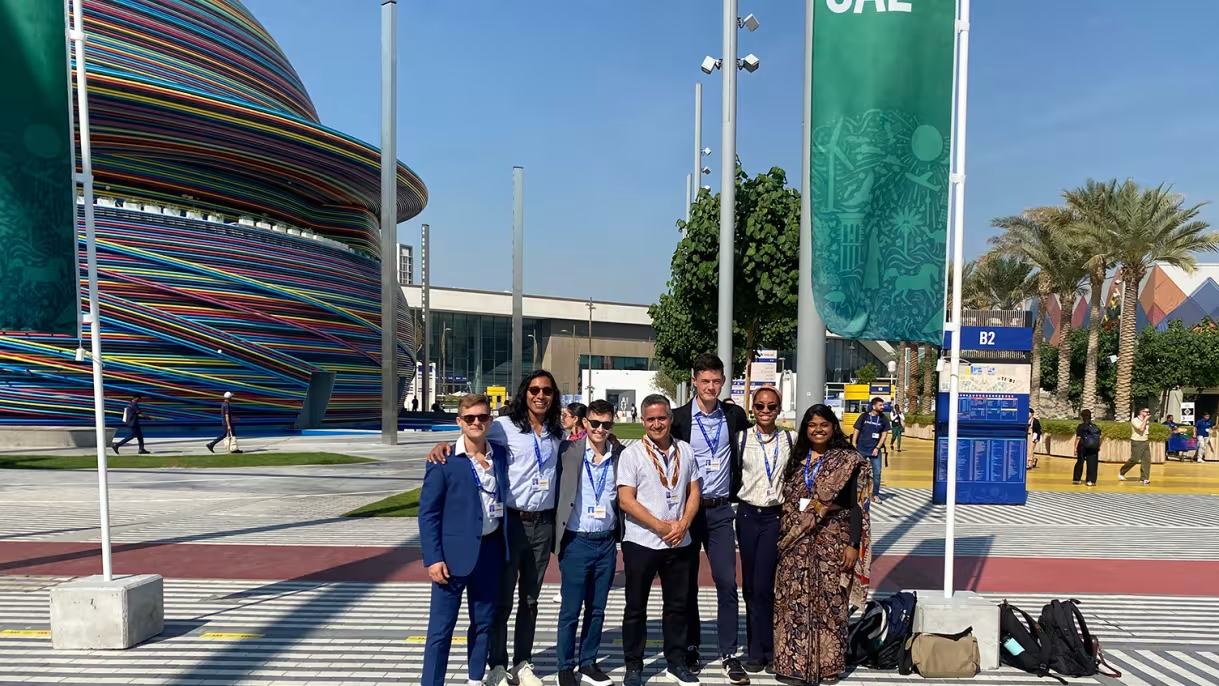

For COP28 Delegates, an Invaluable Chance to Observe – and Learn
The SPIA students who served as delegates to the world’s primary multilateral decision-making forum on climate change earlier this month described busy days filled with observations of negotiations, meetings with officials from across the globe, and invaluable networking.
The 28th Conference of the Parties (COP) to the United Nations Framework Convention on Climate Change, held this year in Dubai, United Arab Emirates, welcomed representatives of government agencies, nonprofits, academic, industry, and nongovernmental organizations from almost every country in the world. Seventeen students, faculty, and staff, including 11 from SPIA, comprised Princeton’s delegation.
“It has been incredible to walk around and get lost in the many languages spoken by people all over the world,” said Anthony Solís Cruz, an MPA student, in a blog post. “While here, we have been able to meet with country delegates, activists, and alumni.”
With some 100 pavilions and many more simultaneous meetings happening adjacent to the gathering, COP28 was “a conference on steroids” that explored “any topic related to climate change, sustainability, and Paris Agreement negotiations,” said Ramon Cruz, a Charles and Marie Robertson Visiting Professor and Lecturer, who was attending his 14th COP.
“This was an incredible opportunity for students to dive into these topics, learn, and network for their research and careers,” he said.
On December 1, COP’s second day, third-year Ph.D. student Edmund Downie described attempting to settle in by “scoping out the site and getting a feel for the rhythms of the conference” – no small feat at a gathering with 80,000 registered delegates. He cited the many pavilions and side events as opportune places to hear from high-level officials in more intimate settings.
“One of our group was feet away from several heads of state as well as the heads of the World Bank Group and European Commission after an event,” Downie wrote.
Solís Cruz was interested in youth involvement at COP28. He attended talks by young activists discussing the impact of climate change in their communities, chatted with a lead negotiator about how he views the role of youth in COP negotiations, and met with youth leaders in the climate space. Solís Cruz also heard queer climate professionals speak about their experience in the climate space.
“This incredibly powerful panel showcased their bravery talking about the intersection of queerness and climate,” he wrote, “knowing that not all identities are allowed to participate meaningfully or even given a seat at the table.”
MPA student Brent Efron was struck by the sheer scope of COP28.
“The scale of the conference is truly breathtaking,” he wrote. “Beyond the roughly 200 nations negotiating, over 300 countries, IGOs, NGOs, UN agencies, and private firms are hosting events throughout the day.”
Seeking to keep from becoming overwhelmed, Efron opted to narrow his focus, joining Solís Cruz in investigating young people’s engagement at COP. This included attending a session titled “Dear World Leaders: A Message from Youth” at the United States’ pavilion and hearing from a cohort of young negotiators representing nations from across the globe.
“There has been no shortage of formal and informal opportunities to meet and hear youth from around the world,” he wrote.
Third-year Ph.D. student Avery Barnett went to COP looking to be at the intersection of Caribbean energy issues and youth involvement within the space. She attended events at the Caribbean Community Climate Change Center, including one that ended with a collective agreement that there needs to be a regional approach to decarbonization.
“The highlight of this day was being able to engage with high-level stakeholders across different sectors and organizations, reconnecting with old colleagues, and learning about Caribbean-focused resources that could play an instrumental role in my research,” she wrote.
MPA student Christian Perkins found “impromptu conversations with professionals, academics, and fellow students” to be invaluable. Those discussions led him to conclude that climate-mitigation efforts are hampered by underfunding.
“The ease with which officials from the U.S. delegation, from State Department representative to elected members of Congress, dive into detailed discussions on climate is as surprising as it is interesting,” he wrote. “Likewise, connecting with folks from Climate Policy Initiative, Global Alliance for a Sustainable Planet, and other NGOs has informed my own thought process about my future career working in climate.”
A conversation with the legal advisor of the Alliance of Small Island States got MPA student Achinthya Sivalingam interested in learning more about the negotiation process. At one point, she sat in on a drafting session and listened to the negotiators try to reach consensus.
“Each word in the text was finely combed through and discussed,” she wrote. “Iran did not particularly like the inclusion of human rights and indigenous people's rights as a part of labor rights, and I'm not sure this was resolved.”
Steven Petric, SPIA’s assistant dean for global outreach, admissions, and alumni engagement, attended part of COP28 and returned with a sense of amazement and hope.
“It was an exhilarating experience,” he said, “not only for the tremendous opportunities the convening represents, but also for the opportunity to see the world work in cooperation and common cause, especially on such a complex challenge.”
Ramon Cruz agreed.
“Two weeks at COP28 could be equivalent to a semester in terms of the intensity of the sessions, the amount of information that can be processed, the experience to see where decisions are being made, and the opportunity to meet and to hear live decision makers in the areas of interest,” he said. “It was a great exposure to the decisive issue of our lifetime. For two weeks you feel that you are at the epicenter of what is shaking the world.”


